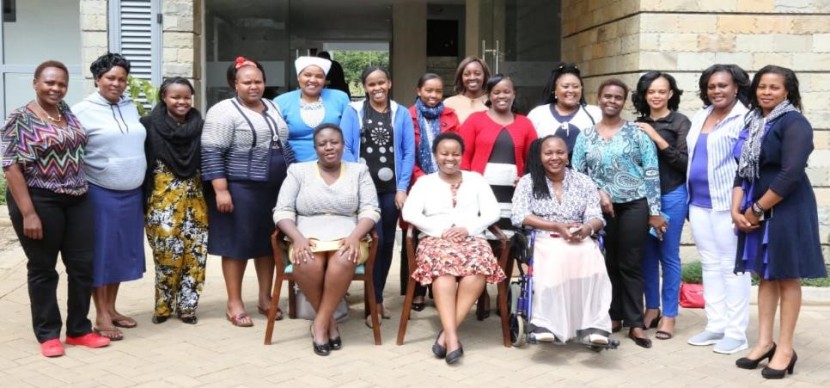With the support of GIZ-CPS, CEEC implemented the project Building the Capacity of Women MCAs from Nairobi and Kiambu Counties to Promote Gender Inclusive Governance between June and October 2018. The activities under this project were; a series of three days’ trainings between June and July 2018 for a total of 38 women MCA’s, networking meeting in August 2018, monitoring the two County Assemblies’ Hansards, development of a Women MCAs Handbook as well as launch of the Handbook which took place in October 2018 alongside project evaluation. The twin objective of the project was to increase the capacity of Women MCA’s to discharge their mandate of representation, legislation and oversight as well as advancing women political leadership through increased visibility in their respective wards through community engagement. In a male dominated political structure, women MCA’s face challenges such as inadequate capacity to discharge their mandate, lack of support from some male colleagues, women not supporting each other, weak Women Caucuses, financial constraints within the Women Caucuses and women giving in to “Divide and Rule” tactics from male colleagues.
The training equipped the women MCAs with knowledge and skills to build social and political capital within and outside the Assemblies. As a result of the training the MCAs actively participated in debates, moved bills and tabled motions in their respective County Assemblies. This was confirmed by a review of the Hansard from both Nairobi and Kiambu Counties as well as the project evaluation. Notable success stories reported included, moving a motion on equipping County residents with first aid skills, issuing statements on county matters, contributing to the budgeting process, integrating a gender perspective into house proceedings notably during a motion on the nomination of a woman as CEC for Health in Kiambu County and supporting a motion for nomination of a woman as a member of the Speakers Panel in Nairobi County. At the community level, the trained Women MCAs understood that they have a right to serve residents of their wards even if they are nominated and not elected. Using the skills they acquired, they therefore started lobbying for support from their elected colleagues as well as the executive. Examples of projects they initiated in their wards are; supporting the elderly, orphaned children and partnering with well-wishers in the private sector to donate school supplies like books and uniforms to needy children. Feedback from the trained Women MCAs indicated that their improved capacity as a result of the project had enabled them to better articulate gender issues (generally) and women’s issues (specifically).
Overall, the Women MCAs reported to have gained confidence to discharge their duties and a new resolve to forge on. Some who wanted to give up on a political career decided to not only stay the course but also aim at higher offices in 2022. The legislators attributed these positive outcomes to the knowledge and skills they acquired from the project.

